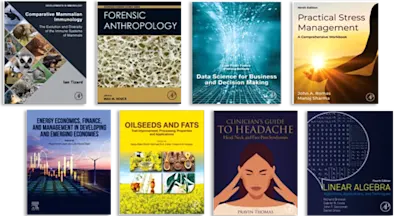
Biovalorisation of Wastes to Renewable Chemicals and Biofuels
- 1st Edition - October 15, 2019
- Imprint: Elsevier
- Editors: Navanietha Krishnaraj Rathinam, Rajesh Sani
- Language: English
- Paperback ISBN:9 7 8 - 0 - 1 2 - 8 1 7 9 5 1 - 2
- eBook ISBN:9 7 8 - 0 - 1 2 - 8 1 7 9 5 2 - 9
Biovalorisation of Wastes to Renewable Chemicals and Biofuels addresses advanced technologies for converting waste to biofuels and value-added products. Biovalorisation has sever… Read more

Purchase options

Institutional subscription on ScienceDirect
Request a sales quoteBiovalorisation of Wastes to Renewable Chemicals and Biofuels addresses advanced technologies for converting waste to biofuels and value-added products. Biovalorisation has several advantages over conventional bioremediation processes as it helps reduce the costs of bioprocesses. Examples are provided of several successfully commercialized technologies, giving insight into developing, potential processes for biovalorisation of different wastes. Different bioprocess strategies are discussed for valorising the wastes coming from the leather industry, olive oil industry, pulp and paper, winery, textile, and food industries, as well as aquaculture. A section on biorefinery for hydrocarbons and emerging contaminants is included to cover concepts on biodesulfurization of petroleum wastes, leaching of heavy metals from E – waste, and bioelectrochemical processes for CO2. Chapters on algal biorefinery are also included to focus on the technologies for conversion of CO2 sequestration and wastewater utilization.
Biovalorisation of Wastes to Renewable Chemicals and Biofuels can be used as course material for graduate students in chemical engineering, chemistry, and biotechnology, and as a reference for industrial professionals and researchers who want to gain a basic understanding on the subject.
- Covers a wide range of topics, from the conversion of wastes to organic acids, biofuels, biopolymers and industrially relevant products
- Bridges the gap between academics and industry
- Written in a lucid and self-explanatory style
- Includes activities/quiz/critical questions
- Edition: 1
- Published: October 15, 2019
- No. of pages (Paperback): 422
- No. of pages (eBook): 422
- Imprint: Elsevier
- Language: English
- Paperback ISBN: 9780128179512
- eBook ISBN: 9780128179529
NR
Navanietha Krishnaraj Rathinam
RS